
Grace Brewster Hopper was an American computer scientist, mathematician, and United States Navy rear admiral. She was a pioneer of computer programming. Hopper was the first to devise the theory of machine-independent programming languages, and used this theory to develop the FLOW-MATIC programming language and COBOL, an early high-level programming language still in use today. She was also one of the first programmers on the Harvard Mark I computer. She is credited with writing the first computer manual, "A Manual of Operation for the Automatic Sequence Controlled Calculator."
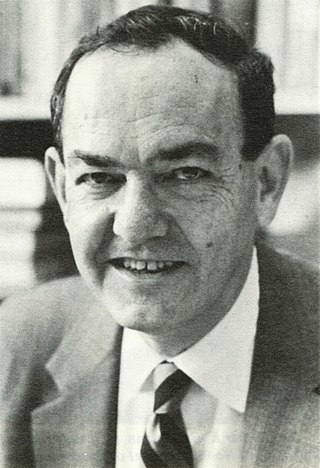
Herbert Alexander Simon was an American scholar whose work influenced the fields of computer science, economics, and cognitive psychology. His primary research interest was decision-making within organizations and he is best known for the theories of "bounded rationality" and "satisficing". He received the Turing Award in 1975 and the Nobel Memorial Prize in Economic Sciences in 1978. His research was noted for its interdisciplinary nature, spanning the fields of cognitive science, computer science, public administration, management, and political science. He was at Carnegie Mellon University for most of his career, from 1949 to 2001, where he helped found the Carnegie Mellon School of Computer Science, one of the first such departments in the world.
Software engineering is a field within computer science focused on designing, developing, testing, and maintaining of software applications. It involves applying engineering principles and computer programming expertise to develop software systems that meet user needs.
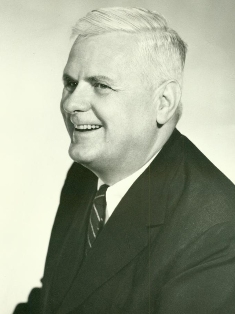
Alonzo Church was an American computer scientist, mathematician, logician, and philosopher who made major contributions to mathematical logic and the foundations of theoretical computer science. He is best known for the lambda calculus, the Church–Turing thesis, proving the unsolvability of the Entscheidungsproblem, the Frege–Church ontology, and the Church–Rosser theorem. Alongside his doctoral student Alan Turing, Church is considered one of the founders of computer science.

The School of Computer Science (SCS) at Carnegie Mellon University in Pittsburgh, Pennsylvania, US is a school for computer science established in 1988. It has been consistently ranked among the best computer science programs over the decades. As of 2024 U.S. News & World Report ranks the graduate program as tied for No. 1 with Massachusetts Institute of Technology, Stanford University and University of California, Berkeley.
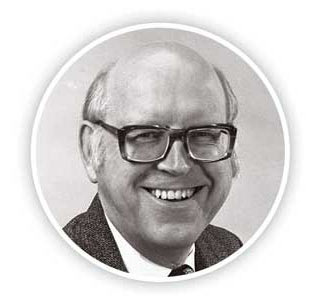
Allen Newell was an American researcher in computer science and cognitive psychology at the RAND Corporation and at Carnegie Mellon University's School of Computer Science, Tepper School of Business, and Department of Psychology. He contributed to the Information Processing Language (1956) and two of the earliest AI programs, the Logic Theorist (1956) and the General Problem Solver (1957). He was awarded the ACM's A.M. Turing Award along with Herbert A. Simon in 1975 for their contributions to artificial intelligence and the psychology of human cognition.
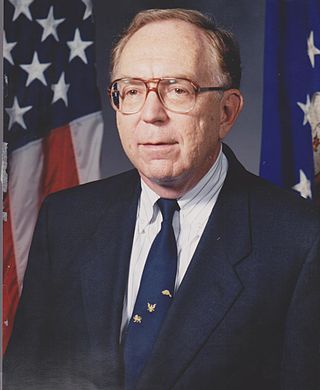
Edward Albert Feigenbaum is a computer scientist working in the field of artificial intelligence, and joint winner of the 1994 ACM Turing Award. He is often called the "father of expert systems."

James Gardner March was an American political scientist, sociologist, and economist. A professor at Stanford University in the Stanford Graduate School of Business and Stanford Graduate School of Education, he is best known for his research on organizations, his seminal work on A Behavioral Theory of the Firm, and the organizational decision making model known as the Garbage Can Model.
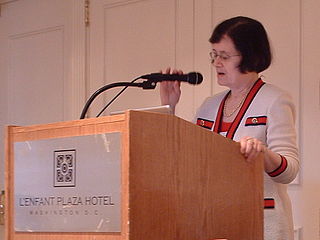
Barbara Bluestein Simons is an American computer scientist and the former president of the Association for Computing Machinery (ACM). She is a Ph.D. graduate of the University of California, Berkeley and spent her early career working as an IBM researcher. She is the founder and former co-chair of USACM, the ACM U.S. Public Policy Council. Her main areas of research are compiler optimization, scheduling theory and algorithm analysis and design.

Herbert Aaron Hauptman was an American mathematician and Nobel laureate. He pioneered and developed a mathematical method that has changed the whole field of chemistry and opened a new era in research in determination of molecular structures of crystallized materials. Today, Hauptman's direct methods, which he continued to improve and refine, are routinely used to solve complicated structures. It was the application of this mathematical method to a wide variety of chemical structures that led the Royal Swedish Academy of Sciences to name Hauptman and Jerome Karle recipients of the 1985 Nobel Prize in Chemistry.

Lenore Carol Blum is an American computer scientist and mathematician who has made contributions to the theories of real number computation, cryptography, and pseudorandom number generation. She was a distinguished career professor of computer science at Carnegie Mellon University until 2019 and is currently a professor in residence at the University of California, Berkeley. She is also known for her efforts to increase diversity in mathematics and computer science.

Alvy Ray Smith III is an American computer scientist who co-founded Lucasfilm's Computer Division and Pixar, participating in the 1980s and 1990s expansion of computer animation into feature film.
Rajk College for Advanced Studies is an educational institution offering advanced courses in the fields of economics, business and social sciences. The College is a self governing community of about 100 selected students living together. It was founded in 1970 by the students of the Corvinus University of Budapest, with Attila Chikán as its first principal. It is the oldest existing institution of the kind in Hungary, giving a model to a number of later colleges in Hungary and abroad, such as the Bibó István College for Advanced Studies in Hungary or the Mikó Imre College for Advanced Studies in Romania. The college was named in 1974 after László Rajk, a leading Hungarian Communist, who was proclaimed enemy of the regime and executed in a show trial in 1949. The idea behind the naming of the college was to express criticism towards the system at the time. In December, 2018 the college decided to change its name and dropped the word László.

Simon Peyton Jones is a British computer scientist who researches the implementation and applications of functional programming languages, particularly lazy functional programming.

Herbert W. Franke was an Austrian scientist and writer. Die Zeit calls him "the most prominent German writing Science Fiction author". He is also one of the important early computer artists, creating computer graphics and early digital art since the late 1950s. Franke was also active in the fields of future research as well as speleology. He used his pen name Sergius Both as this Avatar name in Active Worlds and Opensimulator grids. The Sergius Both Award is given for creative scripting in Immersionskunst by Stiftung Kunstinformatik, first time issued at Amerika Art 2022.

Marshall W. Van Alstyne is the Allen and Kelly Questrom Professor in IS at Boston University and a research associate at the MIT Initiative on the Digital Economy. He co-developed the theory of two-sided markets with Geoffrey G Parker. His work focuses on the economics of information. This includes a sustained interest in information markets and in how information and technology affect productivity with a new emphasis on “platforms” as an extension of the work on two-sided markets.
The Carnegie School is a school of economic thought originally formed at the Graduate School of Industrial Administration (GSIA), the current Tepper School of Business, of Carnegie Institute of Technology, the current Carnegie Mellon University, especially during the 1950s to 1970s.
The John von Neumann Award, named after John von Neumann, is given annually by the Rajk László College for Advanced Studies in Budapest, to an outstanding scholar in the exact social sciences, whose works have had substantial influence over a long period of time on the studies and intellectual activity of the students of the college. The award was established in 1994 and is given annually. In 2013, separately from the annual prize, Kenneth J. Arrow was given the Honorary John von Neumann Award.
The Herbert Simon Award was established in 2004 by the Rajk László College for Advanced Studies. It is given annually to an outstanding scholar in the field of business and management whose works have contributed to the understanding or solving of practical business problems, and had a substantial influence over a long period of time on the studies and intellectual activity of the students at the college.
Sheelagh Carpendale is a Canadian artist and computer scientist working in the field of information visualization and human-computer interaction.













